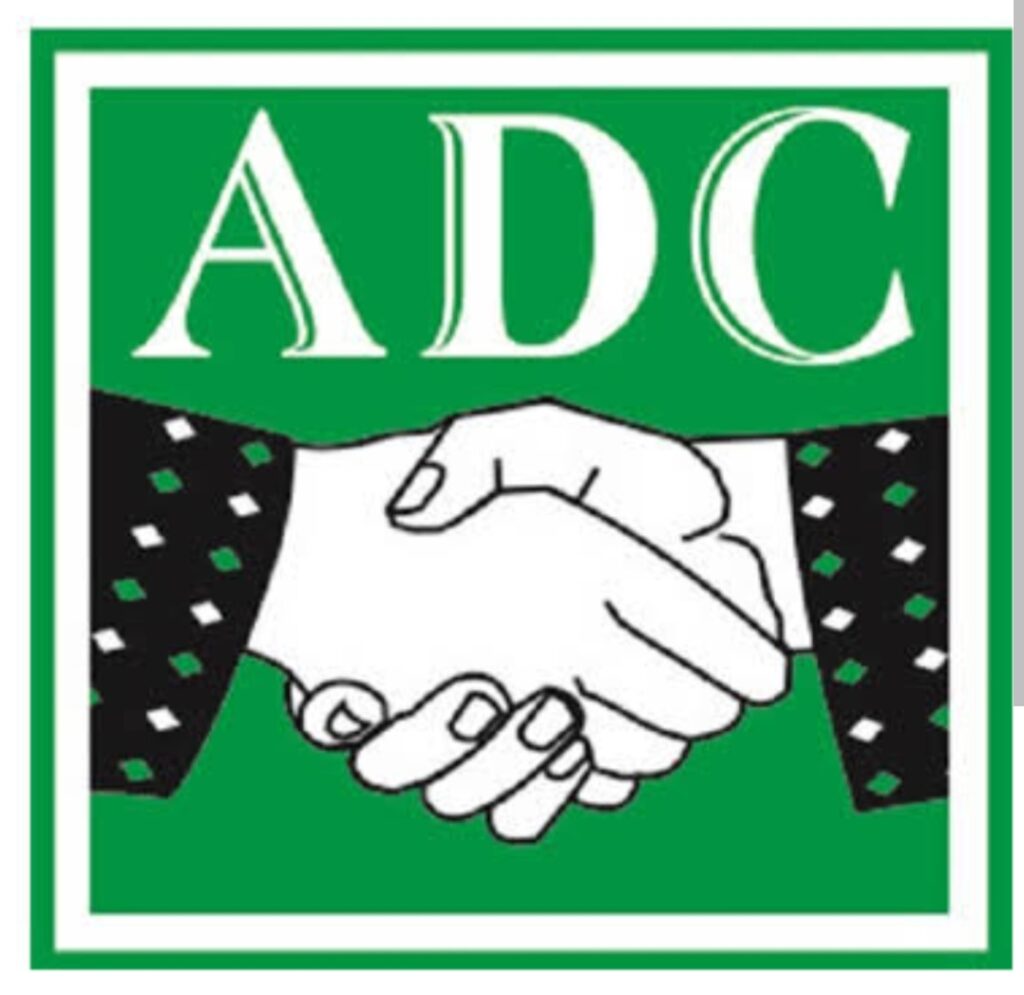
Esther Imonmion
As Nigeria inches closer to the 2027 general elections, the opposition landscape is shifting once again. The African Democratic Congress (ADC), recently established as the coalition platform to challenge President Bola Tinubu, is calling for clarity from its top figures. In a directive that has caught the attention of political watchers across the country, the ADC Coalition leadership urged members of the coalition to resign from their existing parties and fully commit to the ADC ahead of the polls.
The announcement came on Thursday in Abuja, during a caucus meeting attended by senior party leaders and influential political figures. Bolaji Abdullahi, the party’s National Publicity Secretary, confirmed the development, explaining that while no specific timeline had been set for the transition, the coalition expects all members to formally integrate into the ADC.
Since the ADC’s inception on July 2, several opposition leaders have gradually joined the platform. Yet some of the coalition’s most prominent figures remain in a holding pattern. Former Vice President Atiku Abubakar has parted ways with the Peoples Democratic Party (PDP) but has not officially registered with the ADC. Similarly, Peter Obi, the Labour Party’s 2023 presidential candidate, continues to affiliate with the coalition while retaining his LP membership, leaving observers speculating about the timing of their formal commitments.
Abdullahi also indicated that prior issues surrounding the African Democratic Association (ADA) had been resolved and that presidential aspirants in the coalition had agreed to support whichever candidate emerges from the ADC primaries. The party’s National Working Committee is expected to release schedules for the Osun and Ekiti governorship primaries soon, marking the first practical steps in organizing the coalition ahead of the elections.
The caucus meeting drew some of Nigeria’s most recognizable political faces. ADC National Chairman David Mark, former Vice President Atiku Abubakar, National Secretary Ogbeni Rauf, former Kaduna State Governor Mallam Nasir El-Rufai, former Sokoto State Governor Senator Aminu Tambuwal, and former Rivers State Governor Chibuike Amaechi were all present, signaling a united front—or at least the appearance of one—at a pivotal moment for the opposition.
Reactions to the ADC’s directive have been swift, with mixed interpretations across the political spectrum. The ruling All Progressives Congress (APC) downplayed the move. Bala Ibrahim, the party’s Director of Publicity, told local media that the ruling party was unfazed. “This is nothing to frighten or embarrass the APC. People are at liberty to realign as they wish. But I assure you, the APC will only grow in strength. The ADC coalition does not have the capacity to rattle the APC,” he said.
The PDP also offered a measured response. Timothy Osadolor, the party’s Deputy National Youth Leader, suggested the directive could help political organizations better define their membership. “It’s a welcome development. This country has over 240 million Nigerians, and many can join any party. For us, it is even good to know who belongs where,” he noted.
Meanwhile, the New Nigeria People’s Party (NNPP) took a slightly more colorful approach, likening the political maneuvering to a football transfer window. Ladipo Johnson, the party’s National Publicity Secretary, said the NNPP anticipated gaining new members before 2027. “The party and Senator Rabiu Kwankwaso will be pivotal in the 2027 election because Kano and the North-West will determine who becomes President,” he declared.
The Labour Party, on its part, opted to maintain silence. Its factional spokesman, Obiora Ifoh, offered a brief comment: “The ADC is an existing political party. Whatever decision they want to take, it is for them and their supporters.”
For the public and political analysts, the ADC’s directive is more than a bureaucratic exercise; it represents a crucial moment of positioning ahead of what promises to be a highly competitive presidential election. While the ruling APC appears unconcerned and opposition parties weigh their responses, the coalition is trying to solidify its platform, clarify loyalties, and demonstrate organizational cohesion.
As the months to 2027 unfold, all eyes will remain on Atiku, Obi, and other opposition figures—whether they heed the call to fully integrate into the ADC coalition or continue navigating multiple affiliations. For now, the coalition’s push signals both ambition and urgency, highlighting the intricate balancing act of alliance-building in Nigeria’s evolving political landscape.
